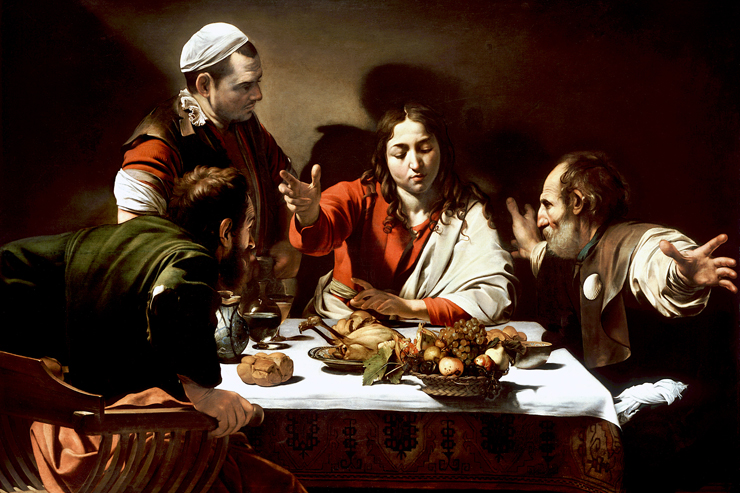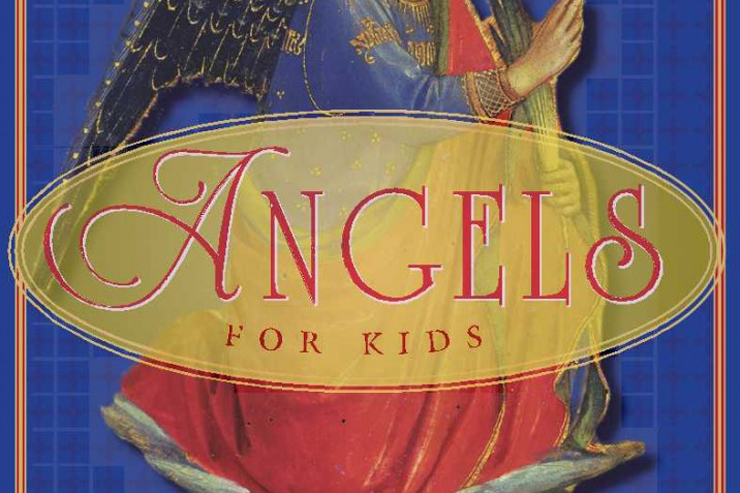We needn’t be bitter in defending our beliefs. Even though many fundamentalists think the Catholic Church is under the control of Satan and all or most Catholics are headed for hell, not all think that — and we shouldn’t think the same of them.
However narrow-minded their faith often is, it’s also usually genuine, both in personal sincerity and in basic Christian orthodoxy. Fundamentalism is not some flaky non-Christian sect like New Agers or Moonies. The things on which Catholics and fundamentalists agree are more important than the things on which we disagree, even though the latter are very important, too.
Since the source for every fundamentalist’s faith is the Bible, we begin there. Fundamentalists will always settle an argument by appealing to the Scriptures. But what do they believe about the Bible? We can’t understand them unless we first understand their deep devotion to Scripture as their absolute.
We all need a final, unimpeachable “court of last resort” beyond which no appeal can go. Most of the modem world is a spiritual shambles because it has no absolute. More, we need a concrete and not just an abstract absolute. A mere ideal, like “the good, the true and the beautiful” or “the idea of God,” won’t do. If God is to be our absolute, He must touch us where we are.
Fundamentalists and Catholics agree that this point of contact is Christ. We also agree that the Bible is a divinely inspired, infallible and authoritative means for us to know Christ. But we disagree about other means, especially the Church and its relation to the Bible. Fundamentalists take Scripture out of the context of the historical Church that wrote it, canonized it, preserved it and now teaches and interprets it. To Catholics, that’s like taking a baby out of the context of its mother.
It is a fault, of course, to ignore Mother Church. But it is a virtue to love Baby Bible, a virtue we should respect and imitate. We can love other things too little, but we can’t love the Bible too much. We can love it wrongly. But we are not wrong to love it.
Seven things fundamentalists believe about the Bible are that it is (1) supernatural, (2) inspired, (3) infallible, (4) sufficient, (5) authoritative, (6) literal, and (7) practical. Catholics believe these things too — but differently.
(1) Fundamentalists stress Scripture’s divine, supernatural origin: It is the Word of God, not just the words of men. The primary author of all its books is the same God; that’s why it’s one book, not just many. Orthodox Catholics agree, of course. But fundamentalists are usually reluctant to emphasize or even admit the human side of the Bible’s authorship. Their view of Scripture, which is the Word of God in the words of men, is like the old Docetist heresy about Christ: to affirm the divine nature at the expense of the human.
When someone calls attention to human features like the great difference in style between Genesis 1-3 and Genesis 12-50, or between First and Second Isaiah, thereby concluding joint authorship, or St. Paul’s personal psychological problems and hard edges (e.g., 1 Cor. 7:6-9, 25-26; Gal. 5:12), they automatically think: “liberalism, modernism!” They fail to see that it’s an ever greater miracle for God to have authored the Bible without effacing the human authors.
(2) This brings us to a second area. Fundamentalists believe the Bible was inspired (“in-breathed”) by God, but they often think of this process the way a Moslem believes Allah dictated the Koran to Mohammed — word for word. Fundamentalists believe in “plenary (total) and verbal [word-for-word] inspiration.”
However, we don’t even have the original autographs of any of the books of the Bible, so we’re not absolutely sure what the exact words were. There were some minor errors in copying, for the earliest texts we have don’t totally agree with each other — though there’s 99 percent verbal agreement among different manuscripts, far more than for any other ancient writings.
Sometimes you even find fundamentalists claiming divine inspiration for the King James version! The serious motive behind this foolish idea is to hold the line against Modernism even in translation. For many modern translations of the Bible are not translations at all but interpretations or paraphrases using the dubious principle of “dynamic equivalence” — i.e., the translator imagines what the writer would have written if he’d written modern English, rather than translating the actual words he did write. The fundamentalist’s concern for word-for-word fidelity, though extreme, seems less mistaken than the revisionist’s fast-and-loose guesses.
(3) Fundamentalists resort to this to guard the infallibility of the Bible. Again they’re fighting a battle against the Modernist, who “demythologizes” and thus dismisses (“dismyths”) any passage that makes him uncomfortable (e.g., those that teach miracles or an absolute moral law).
Catholics agree that Scripture is infallible, or free from error, but not necessarily grammatical, mathematical, or scientific error, only error in its message.
For example, when a biblical poet speaks of “the four corners of the earth” he’s reflecting the common ancient Hebrew belief that the earth is flat; yet his point is not the shape of the earth but the glory of God.
(4) The crucial difference between fundamentalists and Catholics concerns the sufficiency of Scripture, Luther’s principle of “sola scriptura.” The fundamentalists insists he needs no Church to interpret Scripture, for he contends that (a) Scripture is clear, or that (b) it interprets itself, or that (c) the Holy Spirit interprets it directly to him.
All three substitutes for the Church are easily shown to be inadequate: (a) Scripture is not clear, as it itself admits (2 Pet. 3:15-16). After all, if it’s so clear, why are there 500 different Protestant denominations, each claiming to be faithful to Scripture? (b) Nor does Scripture interpret itself, except on occasion, when a New Testament author quotes or refers to an Old Testament passage, (c) Finally, heretics all claim the Holy Spirit’s guidance, too. To rely on a private, personal criterion has been perilous and divisive throughout history.
The strongest argument for the need for an infallible Church to guarantee an infallible Bible is the fact that the Church (the disciples) wrote the Bible and (their successors) defined it by listing the canon of books to be included in it. Common sense tell you that you can’t get more from less; You can’t get an infallible effect from a fallible cause. That’s like getting blood out of a stone.
Catholics agree with fundamentalists that Scripture is sufficient in that it contains everything necessary to know for salvation. If this were not so, Protestants couldn’t be saved! Catholics also agree with fundamentalists that Scripture provides the foundation for all subsequent dogmas and creeds. But fundamentalists insist that all dogmas must be present explicitly in Scripture, while Catholics see Scripture as a seed or young plant: The fullness of Catholic dogma is the flowering of the original revelation.
(5) As for the Bible’s authority, orthodox Catholics agree with fundamentalists that it’s authority is absolute and unimpeachable. Where we disagree is whether the Bible is the only authority and whether it can maintain its proper authority without an authoritative Church to preserve and interpret it. Many Protestant denominations began in an authoritative fundamentalism and slid into a most unauthoritative Modernism.
(6) The weakest plank in the fundamentalist’s platform is surely his insistence on a literal interpretation of everything in the Bible — or almost everything. Even fundamentalists cannot take Jesus parables or metaphors like “I am the door” literally Fundamentalists specialize in literal interpretation of the beginning and end of the Bible, Genesis and Revelation, thus opening evolutionistic and eschatological cans of worms. Though Genesis itself suggests some sort of evolution (1:20a; 24a; 2:7a), it’s a dirty word for fundamentalists. And though Jesus Himself does not know when the world will end (Matt. 24:36), fundamentalists love to make rash predictions — all of them wrong.
Here the fundamentalist makes the same mistake as the Modernist: confusing objective interpretation with personal belief, interpreting Scripture in light of his own beliefs rather than those of the author’s. The literary style of Genesis 1-3 and Revelation are clearly symbolic, just as the miracle stories are clearly literal. Fundamentalist and Modernist alike fail to remove their colored glasses when they read.
Fundamentalists also confuse literalness with authority, fearing that if you interpret a passage nonliterally, you remove its authority. But this isn’t so; one can make an authoritative point in symbolic language, e.g. about the power (“the strong right hand”) of God.
One passage no fundamentalist ever interprets literally, however, is “This is my Body.” The fundamentalist suddenly turns as symbolic as a Modernist when it comes to the Eucharist.
(7) Finally, the greatest strength of fundamentalism comes not from theory but from practice. Fundamentalist biblical principles are weak, but fundamentalist practice of Bible reading, studying, believing and devotion is very strong. And this is the primary point of the Bible, after all: See Matt. 7:24–27.
Even here, though, there’s some confusion. Interpreting it literally, they sometimes apply it literally where not appropriate (e.g., Mark 16:18 as backing “snake handling”). However, few apply Matthew 19:21 literally, like St. Francis.
All in all, a tissue of strengths and weaknesses — that’s how fundamentalist beliefs about the Bible appear. What’s needed above all, then, is discernment, so we both learn from the good and avoid the bad. We must neither mirror their closed-mindedness nor become so open-minded that our brains spill out.
No matter how sincerely and passionately fundamentalists believe, what they believe is less than the fullness of the ancient, orthodox deposit of faith delivered to the saints. If we had half their passion for our great creed that they have for their small one, we could win the world.
Excerpted from Dr. Kreeft’s, Fundamentalists — as appeared in National Catholic Register (1988). Please post your comments and questions below.
If you appreciate our writing, please use both the Share and Recommend buttons to tell your family and friends about this article. Help us help others to integrate their faith throughout their daily life.
Thank you! – The Editors















